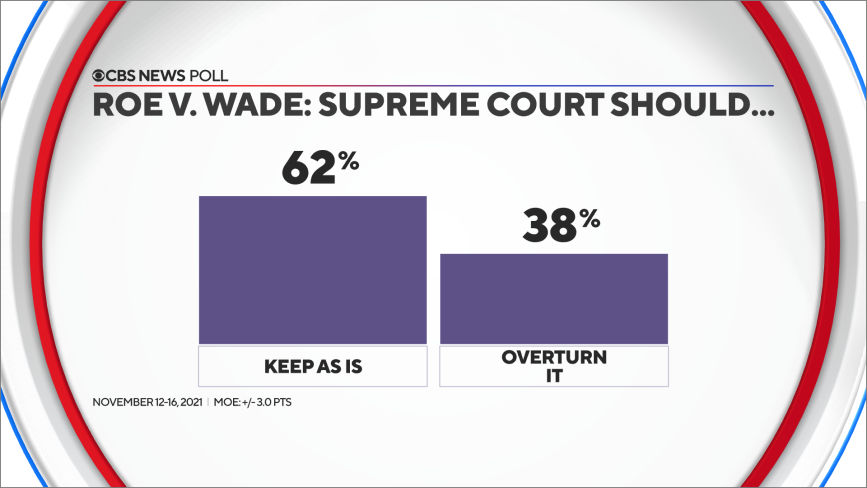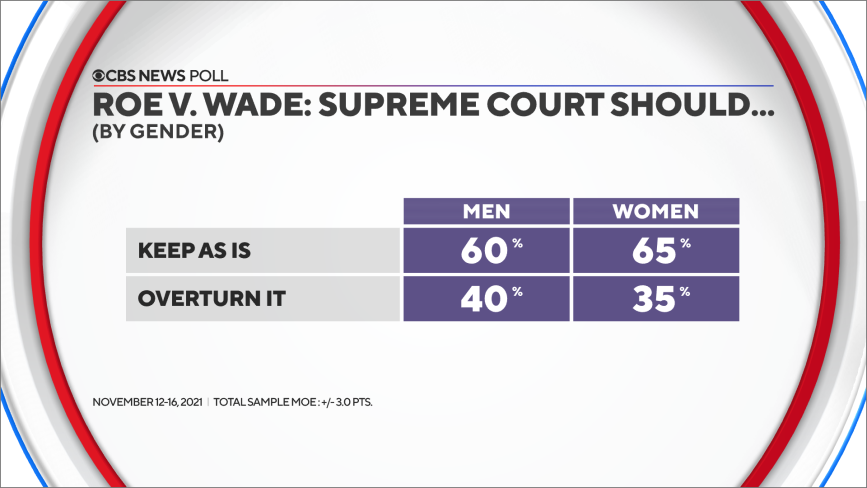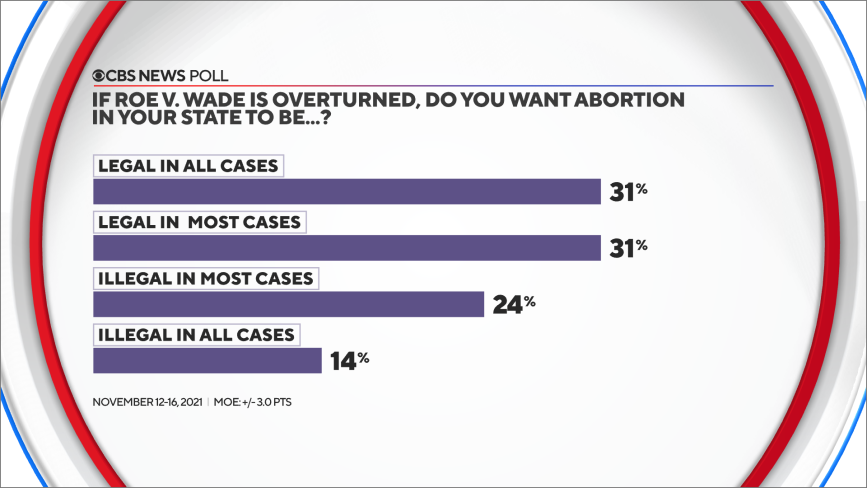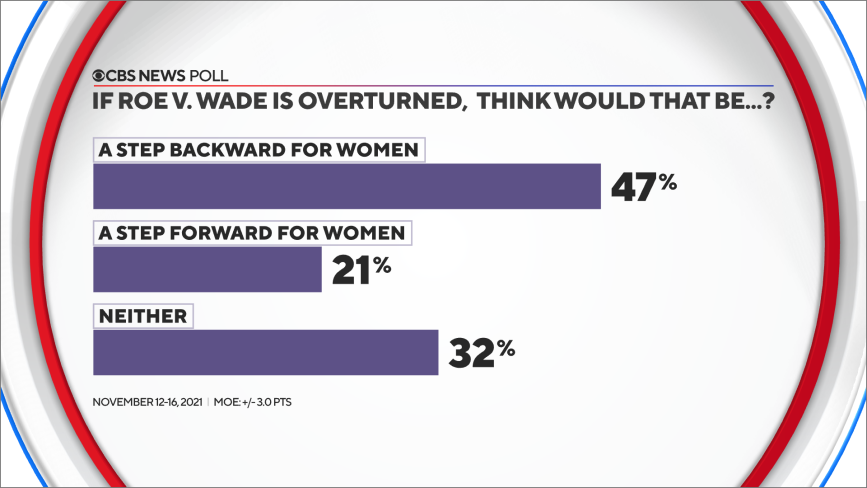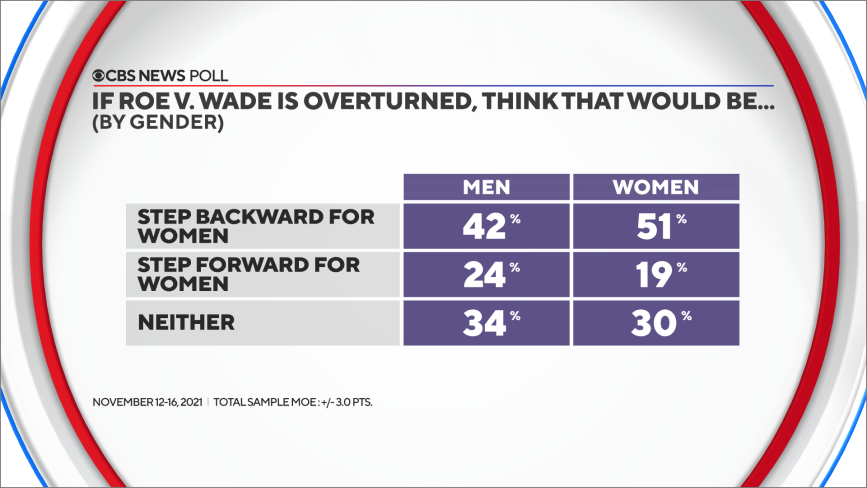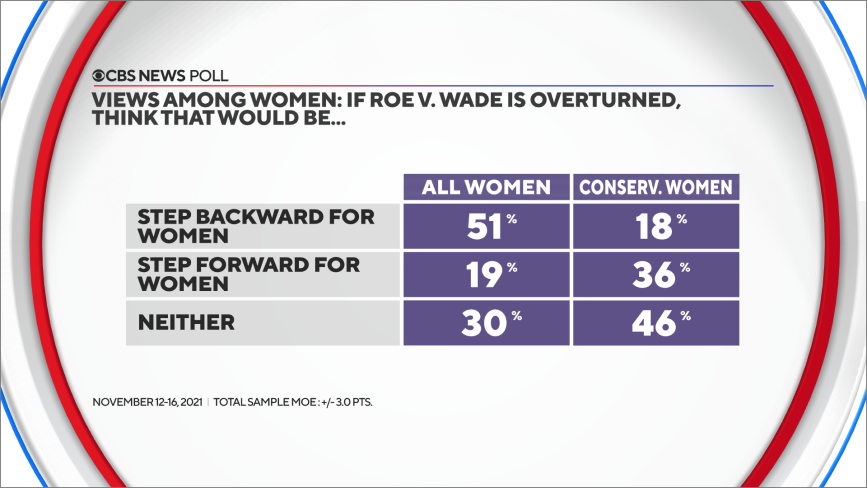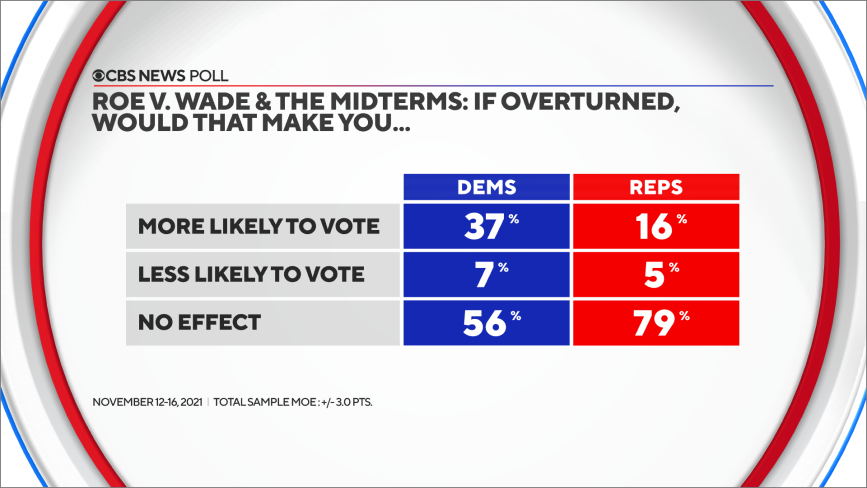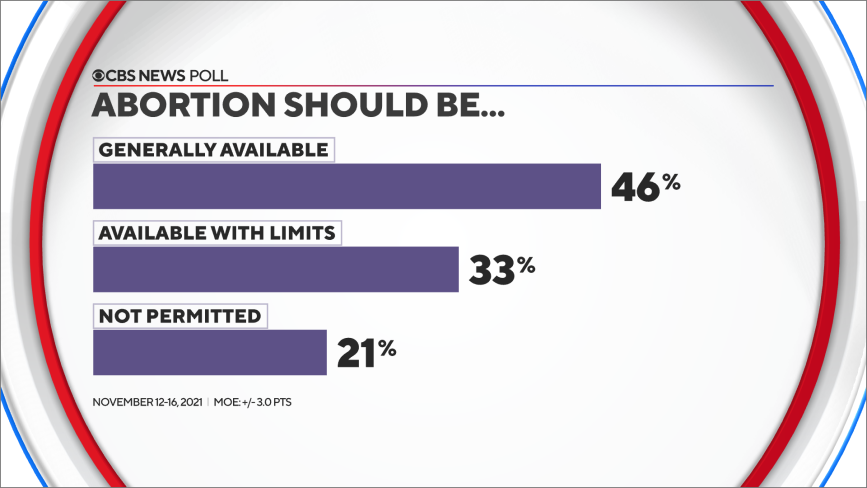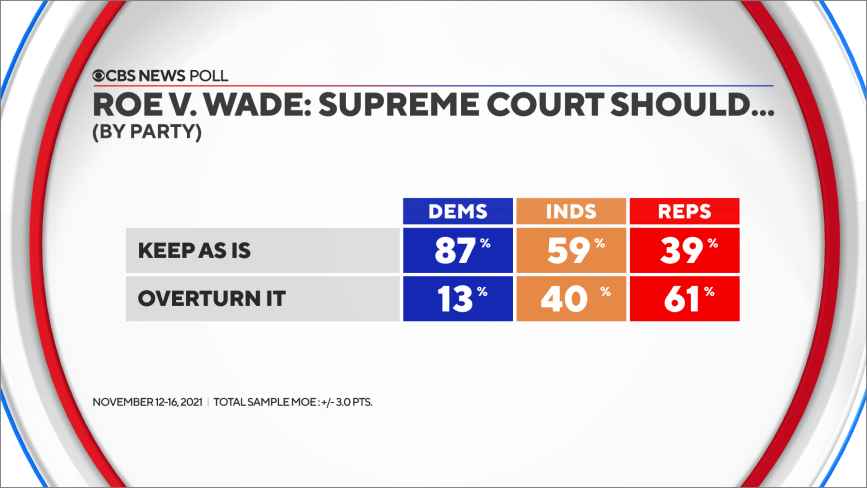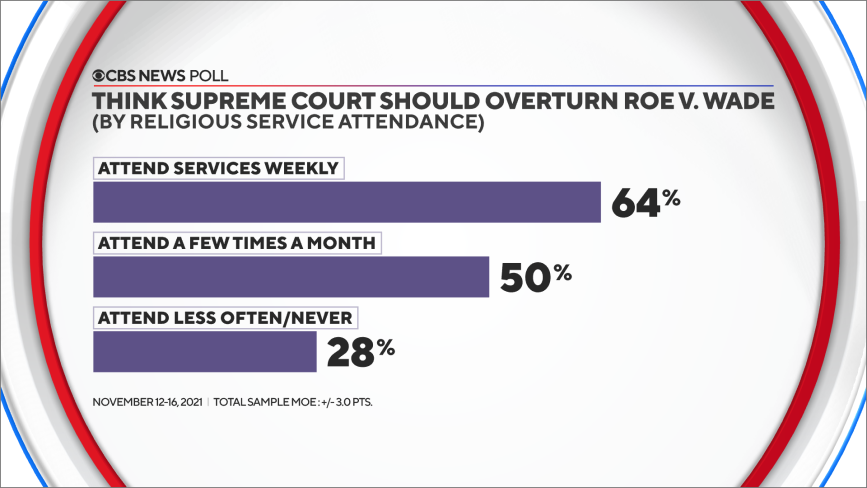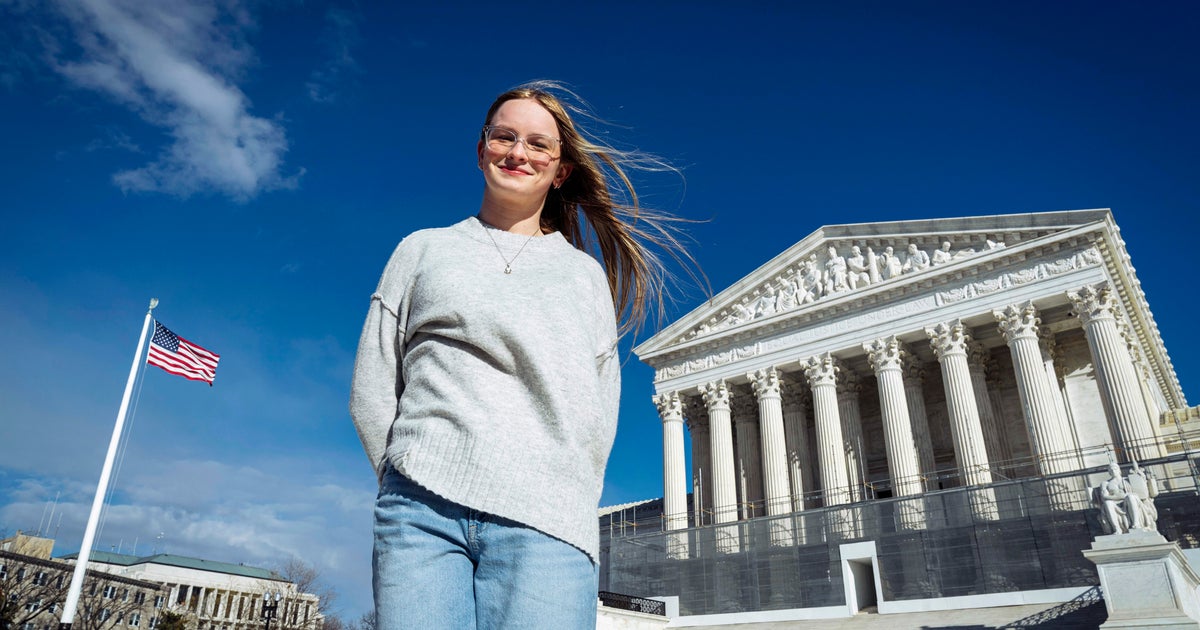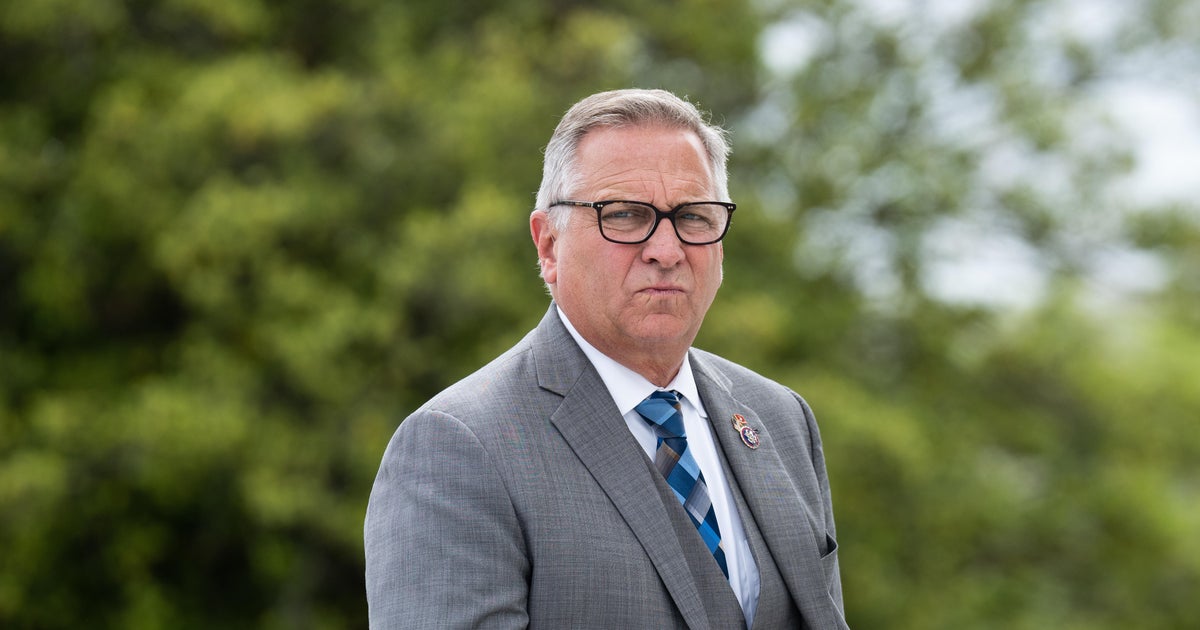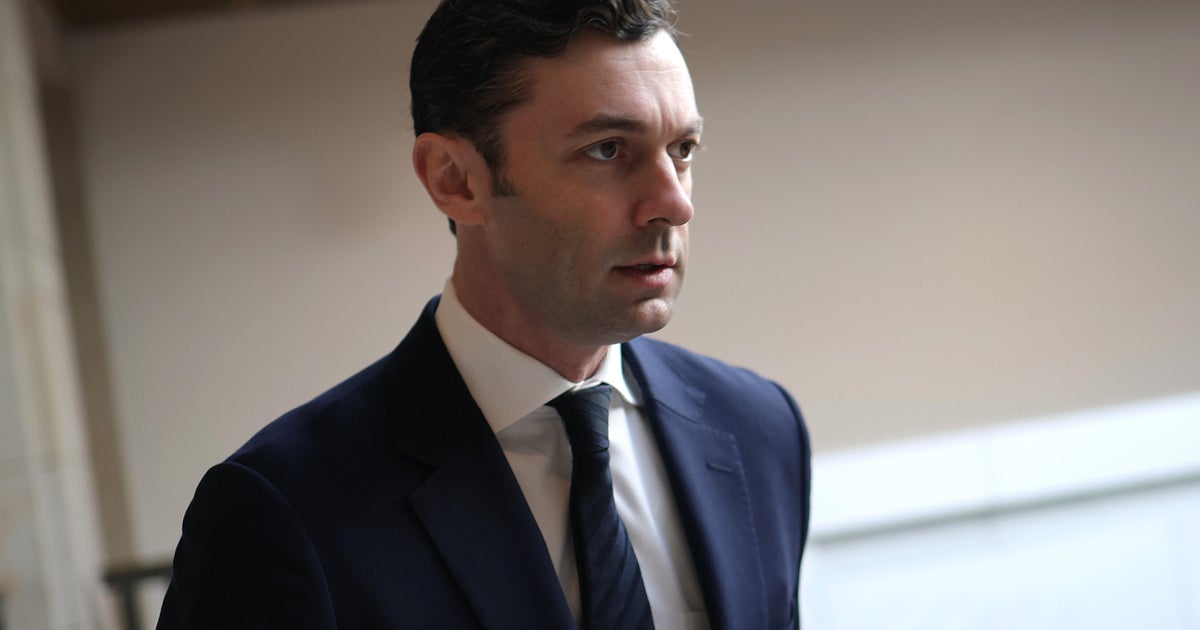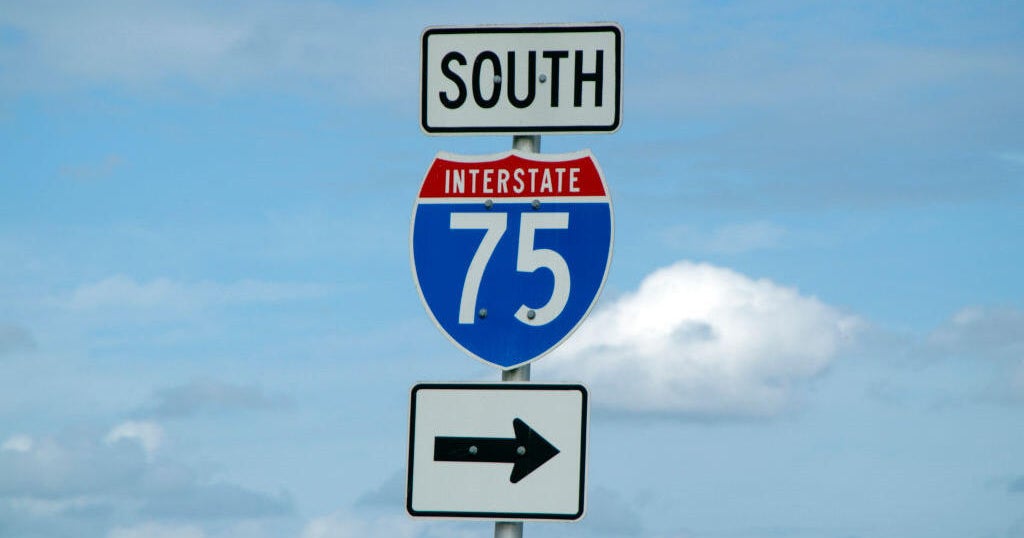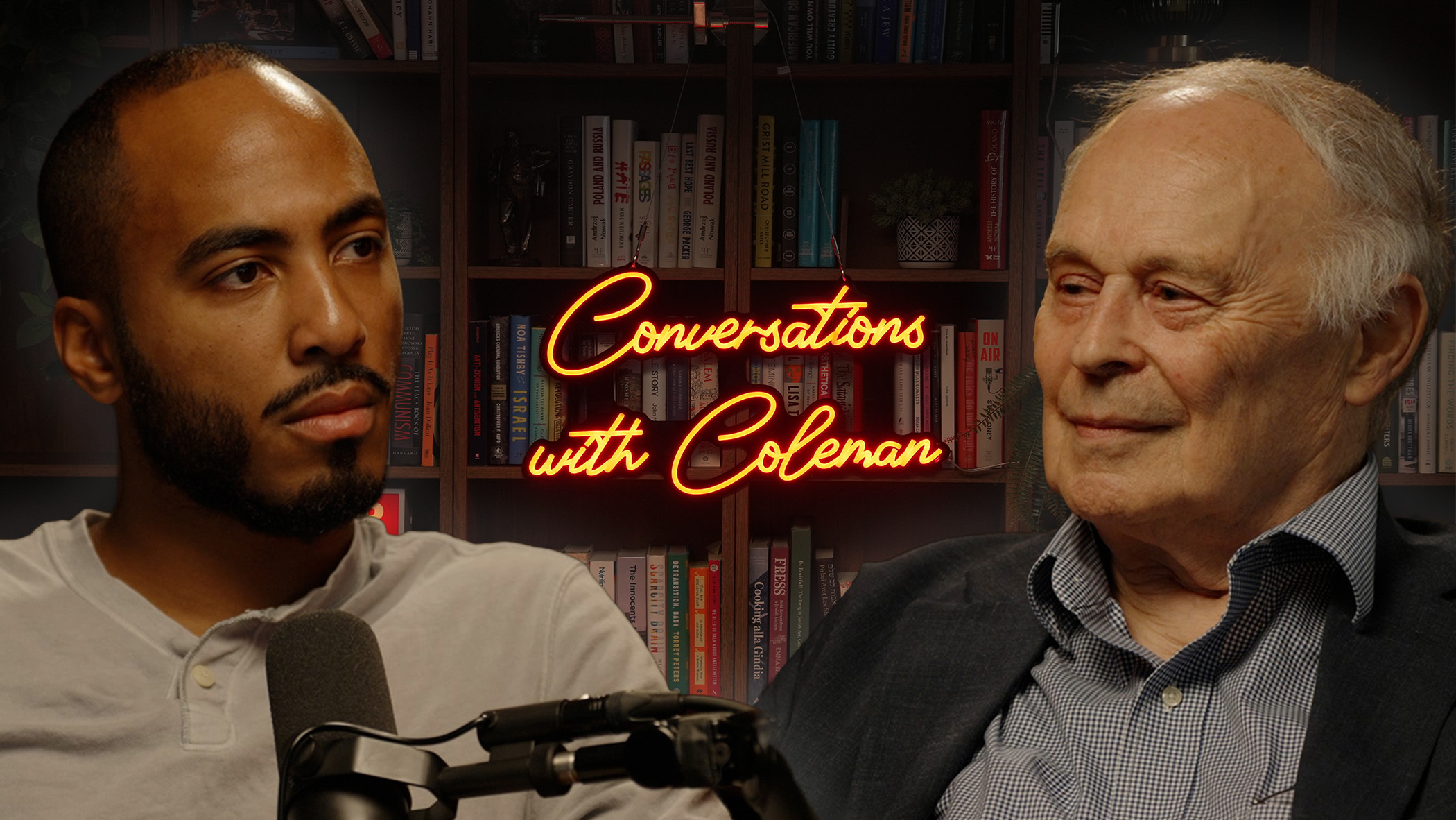A majority supports keeping Roe v. Wade in place - CBS News poll
As the U.S. Supreme Court prepares to hear an abortion case that poses a challenge to Roe v. Wade, most Americans want that 1973 ruling concerning abortion to remain in place. If it is overturned and the matter is left up to the states, a majority would want abortion in their own state to be legal in all or most cases: more than six in 10 say so. Only 14% would want their state to make it illegal in all cases.
Overall, majorities of men and women and Americans across age, racial and education groups want the Supreme Court to keep Roe v. Wade in place and want abortion to be legal in least most cases in their state if Roe is overturned.
Even among people who want Roe overturned, not all of them want to see abortion become illegal in all cases, though many would want it illegal in most cases.
Political ideology is strongly related to views on abortion, more so than other demographic characteristics such as gender, age and race. Most conservatives want abortion to be illegal in most or all cases in their state should Roe v. Wade be overturned, while most moderates and liberals want abortion in their state to be legal.
Asked how they would describe what a potential ruling that overturned Roe v. Wade might represent for women, far more Americans would describe overturning it as representing a step backward for women than as a step forward.
Those who support keeping Roe in place are particularly likely to hold this view, at 70% saying it would be a step backward. Among the smaller percent who want to see the case overturned, most see it as neither a step forward nor backward.
Majorities of both men and women support upholding Roe and both are inclined to think overturning it would be a step backward for women, and a slight majority of women call it a step backward.
Looking at women's views across age groups, women in each age range are more apt to describe an overturning as a step backward for women. By ideology, conservative women, most of whom favor overturning Roe, are inclined to see it as a step forward, in contrast to views among moderates and liberals.
If Roe v. Wade is overturned, the legal issue of abortion would be left up to each state. Most Americans nationwide — six in 10 — say they would want abortion to be legal in their state if the ruling was overturned.
There are 21 states that have mechanisms in place that would move to ban abortion in their state if Roe were overturned, according to the Guttmacher Institute. Looking at respondents in these states in the aggregate, they're more closely divided on what should happen in the event of Roe v. Wade being overturned, compared to people nationally: 52% say they would want abortion to be legal in all or most cases, while 48% would prefer it be illegal in all or most cases.
Almost all of these states went for Donald Trump over Joe Biden in 2020, and our poll finds people in these states are more likely to identify as Republican than Democrat compared to the nation as a whole.
Election 2022 and abortion
If Roe v. Wade is overturned, would that be a motivating factor in the 2022 elections?
If that were to happen, it may do more to energize the pro-abortion rights camp than those who are anti-abortion rights. Right now, Democrats are twice as likely as Republicans to say they would be more likely to vote in 2022 should Roe be overturned. Although for most, such a decision wouldn't change whether or not they decide to vote.
Political divisions on abortion
The public's views on the legality of abortion have remained fairly steady for decades. Most say it should be legal, with more who say it should be generally available than say it should be under stricter limits. Opinions on abortion continue to differ by political partisanship and ideology, as they have for years.
Democrats and liberals are more inclined to think abortion should be generally available, while Republicans and conservatives are more inclined to say abortion should be either be more restrictive or not permitted at all.
Republicans, however, are not unified on the matter of Roe v. Wade. Although the party has many members of Congress and elected officials who want the ruling overturned, almost four in 10 rank-and-file Republicans would leave Roe in place. And it is particularly older conservatives who want to see it determined to be illegal if the ruling is overturned.
Religion and abortion
Along with political ideology — religion — specifically those describing themselves as evangelicals and also those attending services frequently — is a strong correlate of opposition to abortion, as it has long been.
White evangelicals (most of whom identify as conservative) are particularly likely to want Roe overturned — 72% say that — and nearly half don't think abortion should be permitted at all.
Frequency of attendance at religious services is strongly related to opinions on abortion: The more likely people are to attend religious services, the more likely it is that they want to see Roe overturned. This matters more than what religion people identify with.
For instance, overall a majority of Catholics support keeping Roe in place, but those who go to church more often - at least a few times a month - are more inclined to want that ruling overturned.
This CBS News/YouGov survey was conducted with a nationally representative sample of 1,650 U.S. adult residents interviewed between November 12-16, 2021. This sample was weighted according to gender, age, race, and education based on the U.S. Census American Community Survey, and the U.S. Census Current Population Survey, as well as 2020 presidential vote. The margin of error is ±3 points.
